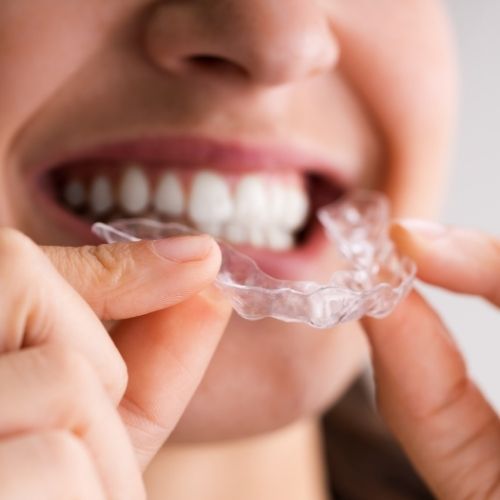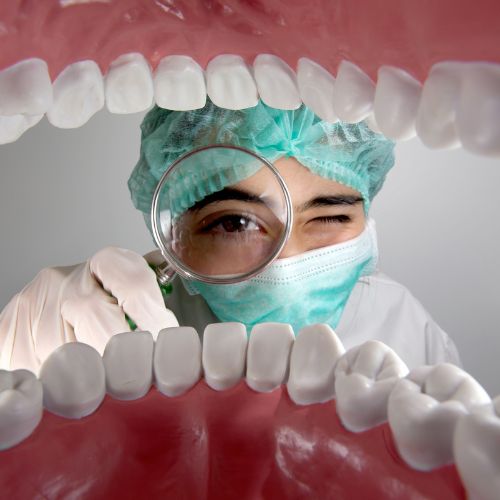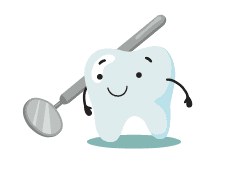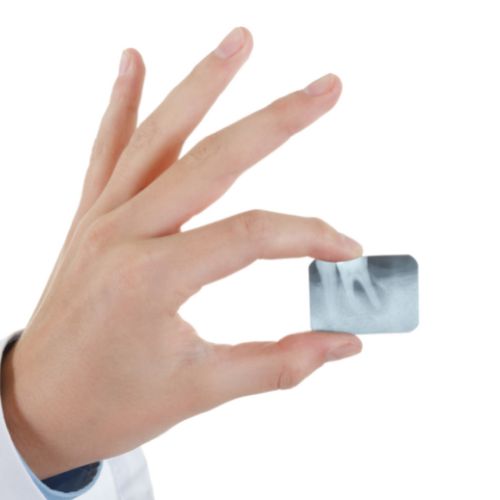Tooth pain can be caused by numerous conditions, such as cavities, decay, fractures, gum disease, abscesses, and trauma to the tooth or its surrounding tissue can result in tooth pain.
Sinus infections and jaw problems can also bring on tooth pain, and even transferred pain from other parts of the body.
Some people may also experience tooth pain as a sign of illnesses like heart disease or diabetes.
In some cases, tooth pain may be caused by a combination of factors. A dentist or other oral health expert can assist in identifying the root of tooth discomfort and suggest the best course of action.
Here are a few possible reasons why your teeth might hurt.
Can Bruxism cause tooth pain?
Yes, Bruxism (teeth grinding and jaw clenching) can cause tooth pain. Bruxism can put a lot of pressure on the teeth and jaws, which can cause tooth pain and damage to the teeth, including chips, cracks, and excessive wear on the enamel. This damage can lead to tooth sensitivity, pain, and discomfort.
 Bruxism is a habit where you grind your teeth or clench your jaws often unknowingly, especially while you are sleeping. Symptoms often include headache, in the temple area or sore jaws when you wake up. Adults are not the only patients that have this problem, children as young as preschoolers have been shown to frequently clench their teeth.
Bruxism is a habit where you grind your teeth or clench your jaws often unknowingly, especially while you are sleeping. Symptoms often include headache, in the temple area or sore jaws when you wake up. Adults are not the only patients that have this problem, children as young as preschoolers have been shown to frequently clench their teeth.
If left untreated, bruxism can lead to more serious dental problems, such as worn down teeth, receding gums, and even loss of teeth. A dentist or oral health professional can help diagnose and treat bruxism, and recommend appropriate treatment such as night guards to prevent further tooth wear and damage.
Researchers do not know what causes people to clench their teeth. In children, bruxism can be a sign of anxiety or social withdrawal. With adults, the condition is very often associated with stress, or a bite alignment issue. Adults who clench often started doing so as a child. Nail biting in children can often lead to clenching as well.
Tobacco and alcohol use may also increase a clenching habit when you are sleeping, along with large amounts of caffeine. Some medications and illegal drugs may cause users to grind their teeth or clench at night.
If you are experiencing headaches in the morning or the middle of the night, have trouble sleeping or wake up with sore jaws, your dentist can make you a custom night guard that will relax your jaw muscles and protect your teeth from wear, cracks or breakage. Your dentist is able to see signs of wear on the biting surfaces and gum line of your teeth, (a condition called abfraction).
Gum Disease can lead to Rheumatoid Arthritis.

Scientists at Johns Hopkins University report. they have new evidence that a common bacteria found in chronic gum diseasecan trigger an inflammatory autoimmune response that leads to rheumatoid arthritis. This bacteria triggers a protein that activates the immune system to drive a cascade of events leading to rheumatoid arthritis.
Gum disease is found in a high percentage of patients, especially those over age 45. It is important to see your dentist, so you can have a proper diagnosis and treatment to prevent tooth and bone loss, and other inflammatory diseases.
Oral Infection a Possible Risk for Alzheimer’s
Inflammation in the brain is a characteristic feature of Alzheimer’s disease. Recently scientists have been looking for  potential peripheral infections, particularly in the oral cavity that could explain brain inflammation.
potential peripheral infections, particularly in the oral cavity that could explain brain inflammation.
Oral bacteria, herpes virus, and possibly fungus, ie (Candida) can enter the bloodstream, pass the blood-brain barrier and cause inflammation of the brain. Any one of these strains of bacteria, viruses, or fungus could be implicated in Alzheimer’s enigma.
Future research on this subject could help explain late onset Alzheimr’s Disease, as for instance, more than 70 percent of the population over 50 have latent herpes simplex in the peripheral nervous system. Half the world’s population has Candida, a fungus found in the mouth that can become treacherous and lead to an infection if it enters the bloodstream.
So it is highly recomended to have regular hygiene visits, to help prevent inflammation.
Adults With Diabetes Lose Twice the Number of Teeth.
Adults with diabetes lose twice the number of teeth as those without diabetes according to the Centers for Disease Control and Prevention.
Periodontal disease is considered the sixth complication of diabetes and has been identified as a risk factor for poor metabolic control in people with diabetes.
Part of the reason patients lose teeth as diabetics are because any infection, including oral infections (periodontal disease), are harder to fight than patients without diabetes. It is, therefore, essential that a diabetic patient has excellent home care and professional dental cleanings on a regular basis.
Warning!
Sodas Cause Long-Term Damage To Teeth.
Acidic drinks such as soda cause long-term damage to teeth, according to a new study by the University of Adelaide. Within 30 seconds of drinking an acidic drink, lifelong damage happens in the form of dental erosion.
 Most sodas have either phosphoric acid or citric acid. As a dentist, I use phosphoric acid every day to etch teeth to help my fillings stay in the tooth. The acid makes tiny etchings in tooth enamel allowing the filling more surface area to grab. Such drinks are best avoided, including diet soft drinks which are also acidic. Phosphoric acid is added to most soft drinks to make the drink taste tangy.
Most sodas have either phosphoric acid or citric acid. As a dentist, I use phosphoric acid every day to etch teeth to help my fillings stay in the tooth. The acid makes tiny etchings in tooth enamel allowing the filling more surface area to grab. Such drinks are best avoided, including diet soft drinks which are also acidic. Phosphoric acid is added to most soft drinks to make the drink taste tangy.
A 32-ounce sports drink can contain up to 14 teaspoons of sugar, while a 20-ounce soda has more than 16 teaspoons of sugar. When bacteria in your mouth are exposed to sugar to feed on, the by-product is also acid. So acid-producing bacteria plus phosphoric acid added to the drink are a double whammy for tooth decay.
Kids should be encouraged to drink water or low-fat milk over sugar-laden drinks like soda, fruit juice, or energy drinks. Fluoridated water is the best choice since not only does it not contain sugar but actually strengthens the enamel by replacing the calcium ion with a more decay-resistant fluoride ion in your tooth.

